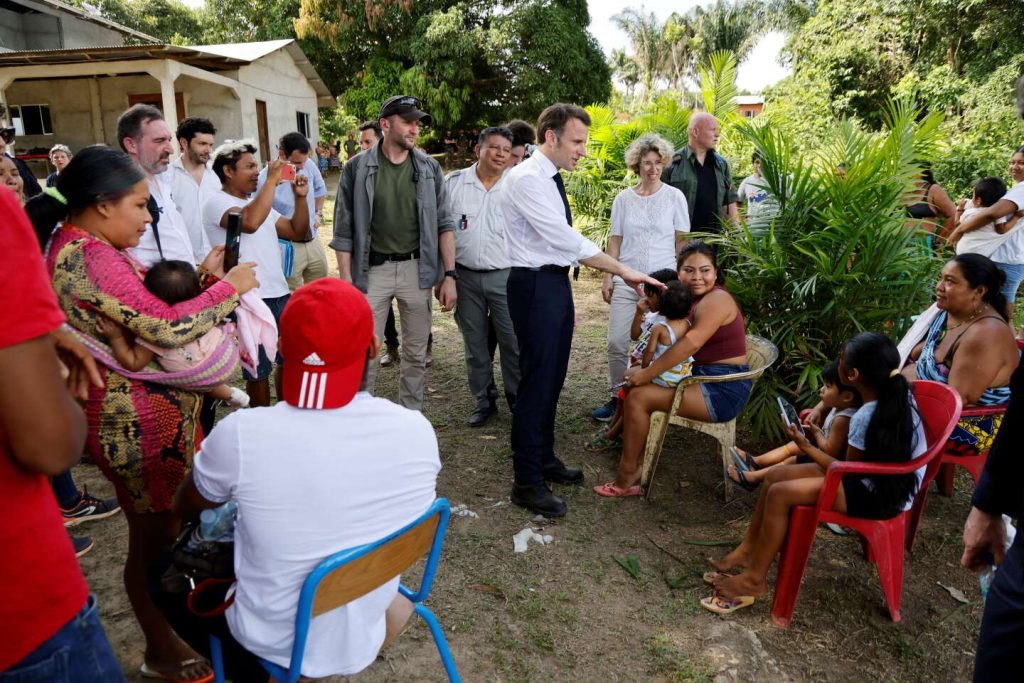Emmanuel Macron visited the village of Camopi in Guyana on March 25, 2024. The traditional leaders of the six Amerindian “nations” of the territory celebrated the adoption of a resolution by the elected Congress that marks a step forward in the recognition of the rights of their communities that have been affected by colonial history. These nations include the Teko, Wayanas, Wayapis, Paykweneh, Arawak Lokono, and Kali’na, totaling 15,000 Amerindians out of 300,000 inhabitants in Guyana. The resolution was seen as a form of resistance against colonization, as mentioned by Christophe Yanuwana Pierre, spokesman for the surviving indigenous peoples of Guyana.
The resolution acknowledges the need for recognition and reparation for the historical violence suffered by the Amerindian communities in Guyana. Despite already having access to collective usage rights in 757,000 hectares of land and 5,000 hectares of concessions for habitat and agriculture, the indigenous peoples want more. They want their lands to be declared as inalienable, non-transferable, and managed exclusively by their communities. This would ensure the protection of their rights to traditional activities like hunting, fishing, and gathering. The resolution also establishes an independent public authority, the “Assembly of High Indigenous Authorities,” to oversee the implementation of indigenous public policies.
The proposal for the resolution was negotiated between Amerindian representatives and elected officials mandated by the territorial collectivity of Guyana. The document calls for the recognition of the concept of indigenous peoples defined by the United Nations, which aims to protect the rights and identities of these groups but has yet to be fully integrated into French law. The resolution highlights the long history of resistance and struggle against colonialism by the Amerindian communities in Guyana, especially in the face of past atrocities like genocide and coercive acculturation in religious boarding schools.
The resolution reflects a shared commitment to achieving justice and reparations for the injustices suffered by indigenous peoples in Guyana throughout history. By advocating for the recognition of indigenous peoples’ rights and land claims, the resolution aims to address the legacy of colonialism and promote the autonomy and self-determination of these communities. The creation of an independent public authority to oversee indigenous policies demonstrates a concerted effort to empower indigenous communities and ensure their voices are heard in decision-making processes.
Despite the progress made with the adoption of the resolution, there is still work to be done to fully address the historical injustices faced by indigenous peoples in Guyana. The resolution represents a significant step towards acknowledging and rectifying the past wrongs inflicted on these communities. By recognizing the specific rights and identities of indigenous peoples and ensuring the protection of their lands and resources, the resolution paves the way for a more equitable and just future for the Amerindian communities in Guyana. Emmanuel Macron’s visit to Camopi and the adoption of this resolution signal a commitment to honoring the rights and dignity of indigenous peoples in Guyana.


